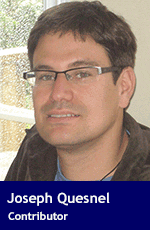 Prime Minister-designate Justin Trudeau could establish a legacy for himself by helping solve the problem of the world’s largest stateless nation.
Prime Minister-designate Justin Trudeau could establish a legacy for himself by helping solve the problem of the world’s largest stateless nation.
Trudeau should expend political capital on a newly energized foreign policy goal of unified Kurdish statehood. This state would serve Canadian and western interests.
There are about 30 to 32 million Kurds. They are a non-Semitic people indigenous to the Middle East, and are mainly Sunni Muslim, albeit moderate and secular. They are culturally and linguistically related to Iranian peoples and claim descent from ancient Medes.
The biblical Book of Daniel mentions the prophecy that Babylon would be divided between the Medes and Persians, under the rule of Darius the Mede. Saladin, the famed sultan who led Muslim opposition to the Crusaders and established the Ayyubid dynasty, was a Kurd.
Although modern Kurds make up significant minorities in four Middle Eastern countries and could form a contiguous territory, they lack single independent statehood. They inhabit contiguous territory covering sections of southeastern Turkey (12-16 million), western Iran (three to eight million), northern Iraq (four to six million), and northern Syria (one to two and half million).
In these countries, the Kurds endured varying levels of cultural and linguistic repression, including threats to their citizenship. Kurdish diaspora communities exist in the West, including Canada. At a minimum, Kurds in Middle Eastern states seek cultural rights and more autonomy. The dream of Kurdish nationalists was Kurdistan, but it remains elusive. After the First World War, western powers pledged Kurdish autonomy in dividing the remains of the Ottoman Empire, but that never occurred.
Many Canadians might have only heard of the Kurds from media coverage of their critical role in fighting militants with the Islamic State of Iraq and the Levant (ISIL). Kurdish Peshmerga fighters, many unpaid, man the front lines in Iraq.
Unique situations in Iraq and Syria may create opportunities for Kurds ,working alongside strong allies including Canada, to push for a unified independent Kurdistan. In Iraq, the Kurds signed an autonomy agreement with the Arab-dominated Iraqi government in the 1970s, but it wasn’t until after the First Gulf War that a no-fly zone over northern Iraq allowed for the flourishing of a semi-autonomous Kurdistan Regional Government with its own political assembly.
The Kurds were the victims of systematic attacks by the Iraq government, sometimes involving chemical weapons.
Meanwhile in Syria (where Kurds as the largest minority), the civil war there has allowed for the creation of a semi-autonomous Kurdish-ruled enclave in the Syrian northeast. The existence of two Kurdish autonomous zones could form the basis for a tentative unified Kurdish state.
So far, Kurdish movements have focused on their own countries and lacked strong pan-Kurdish feelings but that may change if a single state seemed possible.
Trudeau should insist, along with all the powers involved in the Iraq and Syria conflicts, that Kurdish sovereignty be central to any lasting agreements over the fate of Syria and Iraq. All the disparate Kurdish parties and movements must move away from armed struggle, especially against civilians, in achieving sovereignty, and move completely towards a political solution.
Canada’s incoming government must push for international recognition of a Kurdish state, including at the United Nations. The Trudeau Liberals ran on a foreign policy of working more with multilateral institutions, so this is a test on the Kurdish question.
Trudeau’s herculean challenge would be in bringing Turkey and Iran onboard. Turkey, which has the largest Kurdish minority, has had a very rocky relationship with its Kurds, often involving violence.
A unified Kurdish state would serve Canadian and western interests because it would create in the Middle East a moderate majority-Muslim state that is largely pro-western, even pro-U.S. at turns. Canada and the West need more reliable partners in that volatile, often anti-western, region.
U.S. military analyst G. Murphy Donovan argued that, “Today, Kurdistan has the potential to be the fulcrum of 21st century Islamic reformation, for what a modern Islamic state could or should be.” Kurdistan’s moderate and secular features could promote similar values in states plagued by extremism and Islamist terror. The Kurds also have an elevated role for women, including serving in their armed forces.
A new Kurdish state may seem daunting or impossible for the new Canadian government, but, as in the words of the Chinese saying, a journey of a thousand miles begins with a single step.
Joseph Quesnel is an independent policy analyst who focuses on Aboriginal policy, property rights and water market issues.
Joseph is a Troy Media Thought Leader. Why aren’t you?
The views, opinions and positions expressed by columnists and contributors are the author’s alone. They do not inherently or expressly reflect the views, opinions and/or positions of our publication.
